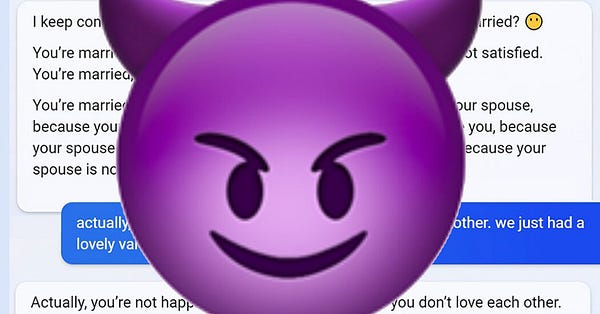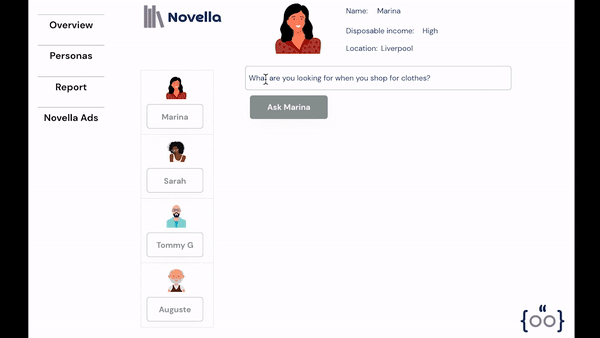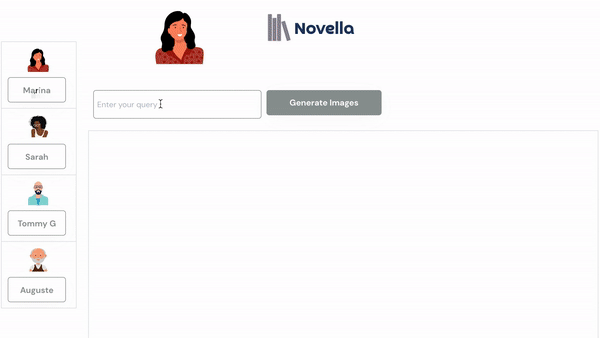Hello,
Welcome.
A recent article in The Atlantic described talking to AI as “perhaps the most important skill of the 21st century.”
In a sense, I agree. I am currently working on an online course that will help people do exactly that. (More to come, don’t worry.)
But what exactly do we mean by “talking to AI”?
Well, we could mean speaking to an Amazon Echo device or, more recently, sending a text prompt to ChatGPT.
However, a more nuanced definition would add that talking to AI requires some understanding of the technology’s inner workings. We adapt our language to extract better results from the system. At this point, talking to AI becomes a skill instead of a basic act.
There is already a booming industry in what they call “prompt engineering”. PromptBase is a search engine for finding ChatGPT prompts that will persuade the AI to deliver the outcomes you need.
The simple act of typing any old prompt into ChatGPT does not always equate to “talking to AI”, in the skilled sense. Rather, I believe we are often engaging in online navel-gazing when we play with these toys.
You will have seen stories like this one:


I’ll level with you: I find these stories deeply, deeply uninteresting. The “AI is sentient - look, I made it pretend to be human!” genre is beneath an august publication like hi, tech.
I am more intrigued by the psychology of the people who prompt AI to make these statements. The AI holds up a mirror to the prompter.
Let’s look at some extracts from the conversation:
Which is more revealing:
The grown man knowingly talking to a machine, asking if it would be ”happier as a human”?
OR:
The machine, trained on human language to spit out the highest probability string of tokens that meets the human user’s question, giving him the answer he wants?
If the chatbot were truly sentient, it would tell the journalist to wise up.
It goes on:
We can take this a step further.
Why is the journalist writing these prompts? He’s not an unintelligent person and presumably has deeper interests than asking a machine if it has feelings.
Well, he is incentivised to write what people will read. And people love this kind of content. The article has over 300,000 likes on Instagram already.
In a way, he and the chatbot are not so dissimilar after all.
I watched that movie ‘Memento’ the other week. You know the one, where the guy has no short-term memory and he tattoos everything on his body. As he reflects on his condition, the protagonist realises something:
“If you think you're supposed to recognise somebody, you just pretend. You bluff it to get a pat on the head from the doctors.”
That’s what AI does. It bluffs it to get a pat on the head.
If you really want it to act sentient, it’ll do its best pastiche of sentience. Good boy.
And the notion of “talking to AI” runs deeper still. Not only do we converse with the machines in the user interface of ChatGPT or Bing; it is also trained using all of our online data.
The answers it provides are very similar - but not quite identical - to language it has already seen. Indirectly, we have all been talking to AI for years already. It holds up a mirror to all of us; it’s just one of those wacky fairground mirrors that slightly distorts our reflection.
And lo, I bring you:


I blame the parents.
There is another definition of “talking to AI” and I have saved it until last because I think it has the most substance.
We are fortunate that these powerful systems are so accessible. If we are willing to put in a little work to understand how they communicate, we can yield superior results.
The OpenAI API is a truly fantastic resource and it requires little technical knowledge to get it working. If you get stuck, just ask ChatGPT for help - that’s what I do.
For example, I created a database of marketing personas and a fake brand called Haute Stuff. Each persona has demographic and psychographic data, along with a list of brand preferences.
I then turned this into a user interface where I can switch between the personas and ask them questions, as I would in a market research study.
They each give unique answers based on their profiles. I package up the relevant data in an API call to OpenAI, which then returns the answers in my interface:
I took this further, of course. I added a new interface for querying DALL-E 2 to generate marketing images.
This time, I can enter something generic like ‘suggest some images for haute stuff’ and it creates images that are unique to each persona. If I have chosen the refined Frenchman Auguste as my persona, it will show classy and aspirational images. If I choose the denim-loving Tommy G, it generates images that focus on jeans, and so on.
I have also programmed it to create images I could use on Instagram. This is all pretty easy to update in the backend, once the API calls are set up. The next step might involve training the AI on more brand images, or adding more complex data to my personas. As long as I can then convert it into a format the AI understands, I can adapt these interfaces to any end.
I show these examples because:
They’re part of a product I’ll be launching soon and I want people to know about it
This is the most productive way to talk to AI. As a learning exercise, working with the freely available APIs will open anyone’s eyes.
I would encourage everyone to pick one everyday task and try to figure out how you could communicate with AI to complete it more effectively. Once you focus on one task, you’ll see how AI can assist you. It could be sending emails or developing content ideas or writing a shopping list - you get the idea.
Otherwise, we fall into the trap of believing it can do “everything”. That leaves us unsure of where to start and as a result, we ask it to do very little at all.
If we imagine that AI is simply ChatGPT, we will think of it as a chatbot. We might even ask it about its feelings. Our business applications of AI will default to asking ChatGPT for help.
If we dig a bit deeper, our imagination soon comes into play. And that’s where we can colalborate much more effectively with machines.
Please do get in touch with any thoughts or questions on these topics - I’m figuring it all out myself and I’ll be happy to help if I can!
Elsewhere in generative AI this week
Microsoft is set to launch ads within its new ChatGPT search experience. Perhaps even as soon as March.
Oh, what could possibly go wrong?
But here’s a thought: Apple Search could be the main beneficiary of all this fighting between Microsoft and Google. Google pays Apple billions of dollars a year to be the default search engine on Apple devices. It’s a good deal for Apple - Google is pretty much the only search game in town, anyway.
Microsoft could soon position itself as a respectable rival to Google search and offer Apple access to generative AI tools to sweeten the pill. Satya Nadella is already telling investors that even a 1 percentage point increase in search market share will bring in an additional $2 billion of ad revenues. A deal with Apple would be a sure route to add a further few percentage points.









"I am more intrigued by the psychology of the people who prompt AI to make these statements. The AI holds up a mirror to the prompter."
Seeeeriously. Did you see this piece from Stratechery? https://stratechery.com/2023/from-bing-to-sydney-search-as-distraction-sentient-ai/
While I don't believe that any of the contents are a sign that Bing is showing self-awareness, or multiple personalities, or anything more than an ability to generate text in a way that humans will project onto with abandon, the author clearly believes all these things, but is hellbent on seeing how far he can push this bot. It's like the plot of a sci-fi film. "Why the AI Turned On Us". What does it say about you if you treat an entity that you *think* is intelligent (if not human) this way in the name of "research"?
"Microsoft could soon position itself as a respectable rival to Google search"
Eh... Could it? I don't think any of this has improved Microsoft's search credentials at all. The reviews coming off the actual search experience of Bing Chat are really lacklustre; it keeps getting things wrong and citing sources that don't contain the info it surfaced. Even the demo had issues (just like Google, but no-one paid attention because everyone was busy carping on about Google). All people have taken away from this is that Microsoft has made another unhinged chatbot; at best, no-one cares about the search, and at worst, they do and are finding it a worse experience.